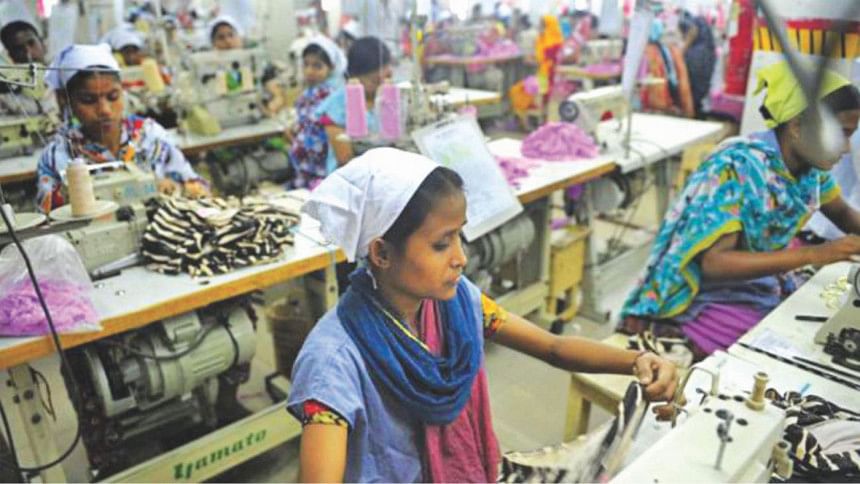Force majeure: Apparel buyers’ deadly weapon

The biggest problem faced by our textile industry right now is not the coronavirus. Rather, it is a small term in a sales contract that was initially created to protect contracting parties is now being misused by foreign buyers as a deadly weapon to avoid liability. It has become the worst nightmare for about 15 million Bangladeshis, without their knowledge.
Essentially, centuries ago when the first contract was made, the most imperative element that the parties relied on was trust—a trust that the parties will fulfil their obligations, come what may. But as society progressed, this trust was codified into a document and a number of clauses were invoked to protect all the parties involved. One such clause is "force majeure", a concept exhibited in Bangladeshi law under Section 56 of The Contract Act 1872.
Professor Anowar Zahid, an expert in international trade law, defines force majeure as something unexpected and beyond reasonable human foresight, an occurrence of which makes the performance of the contract impossible and, therefore, discharges the parties from the contractual obligations. Such events could be war, hurricanes, fires, earthquakes, terrorism etc.
Nevertheless, whether or not a party can plead Covid-19 as a force majeure event depends on whether or not the contract contains a clause in this regard. If it is there, it still depends on how it is crafted. For example, it (the force majeure clause) may include terms like "pandemic", "epidemic", "quarantine", "illness", "plague", "outbreak" or "disease". Even depending on the context, Covid-19 could arguably be included within the scope of broader catch-all phrases, such as "Act of God," or "circumstances beyond a party's reasonable control".
But if the aforementioned terms like "pandemic" or "epidemic" are not included in the contract, Covid-19 might not be considered as a force majeure event unless the contract is being carried out in areas where the government has instructed all non-essential businesses to discontinue operations, consequently, deferring the performance of the contract.
If the force majeure clause itself is not included in the contract, a party may still rely on the principle of rebus sic stantibus, when the circumstance under which the contract was originally made has fundamentally changed. This is an exception to the principle of pacta sunt servanda (promise must be kept). However, the court of law takes a very restricted approach to give effect to the force majeure clause or the stantibus principle and performance will only be exempted if the event that caused the party's non-performance is specifically identified. Essentially, the court wants to be satisfied of two important things, namely that the force majeure has a direct effect on the performance of the contract, and that the party relying on this clause has taken steps to avoid and mitigate that effect.
At this point, it is crucial to understand that if an event such as the Covid-19 pandemic results in economic hardships, that hardship does not amount to a force majeure event. According to a report by CNN Business, "More than half of the 316 Bangladesh suppliers surveyed by Penn State University's Center for Global Workers' Rights said that most of their finished or in-process orders have been cancelled since the pandemic began".
Much attention should be given to the part "since the pandemic began" because this clearly indicates that foreign buyers are using Covid-19 as a force majeure event and cancelling their orders without monetary compensation, way before their performance could be affected by Covid-19. Some of the orders that were cancelled have already reached the buyer's ports!
Such cancellation is utterly illegal because as mentioned, one simply cannot terminate or cancel an order because of economic hardships as it does not constitute a force majeure event.
Furthermore, a force majeure clause can only be invoked in the case of an executory contract, which is a contract that is yet to be executed. Because the orders cancelled by the buyers are basically contracts that have been executed, there is no scope for the application of a force majeure clause. As President of the Bangladesh Garment Manufacturers and Exporters Association (BGMEA) Rubana Huq said, "I don't want any grant, I don't want any kind of charity, I just want the bare minimum justice for our workers". This justice can only be achieved if foreign buyers are made to fulfil the terms of their contracts.
These illegal cancellations have led to huge disruptions in society as millions of workers lost their jobs and almost all of them experienced unjustified pay cut. Workers, both female and male, who were the only bread-earners of their family, are now struggling to buy a day's meal, according to BBC Bangladesh. Rubana Huq told Deutsche Welle that BGMEA is trying to secure workers' wages and keep the factories open, alluding to a potentially calamitous situation that is principally being caused by these illegal cancellations.
To settle such illegal cancellations, the appropriate first step would be for the buyers and sellers to enter into negotiations with the aim of reaching a common ground. However, due to a lack of dispute resolution provisions in the contract, negotiating becomes a difficult job to pull off, especially when the foreign buyers cannot be reached on phone or email. Hence, it is very important to draft a contract incorporating sufficient dispute resolution provisions such as arbitration, which can ultimately help both the parties settle disputes that may arise during the performance of a contract, without having to go to court, thus maintaining privacy and speed.
It is important we understand the force majeure clause and what can be done if it is unjustifiably invoked. The incorporation of a dispute resolution provision in the contract is equally necessary. I urge people to take actions and not remain silent out of fear of losing garment orders. This is about our rights and the rights of 15 million workers—this is about Bangladesh's rights.
Anusha Islam Raha is an LLB (Hons) graduate from BPP University, UK. She is an LLM student pursuing her career as a teacher.

 For all latest news, follow The Daily Star's Google News channel.
For all latest news, follow The Daily Star's Google News channel. 



Comments